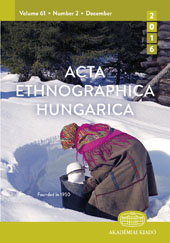Visionaries and the national idea in interwar Bulgaria: The circle of the Orthodox Association The Good Samaritan
Visionaries and the national idea in interwar Bulgaria: The circle of the Orthodox Association The Good Samaritan
Author(s): Galia ValtchinovaSubject(s): Social history, Nationalism Studies, Interwar Period (1920 - 1939), Eastern Orthodoxy, Sociology of Religion, History of Religion
Published by: Akadémiai Kiadó
Keywords: Bulgaria; history; nationalism; Orthodoxy; popular prophets; visionaries;
Summary/Abstract: A loser of the First World War, interwar Bulgaria is characterized by developments in its spiritual and religious life that reflect the idea, and the feeling, of a “national catastrophe”. One of the expressions of this general mood is the multiplication of religious organizations run by lay people in which religious activism is infused with ideas of national grandeur. Born in the early 1920s, The Good Samaritan was an ultra-Orthodox organization founded by former military officers with the help of an Orthodox priest. Within a few years it entered in conflict with the Bulgarian Orthodox Church, which treated it as a sect. It was, however, successful in rallying citizens and peasants alike under millenarian slogans. The association relied on visionaries and popular prophets to promote its ideas of Bulgaria as a New Israel. The paper focuses on two of the most outspoken prophets acting on behalf of The Good Samaritan, both women. By examining their visionary techniques and pronouncements, the aim is to show how national ideology and political climate influence the “work” of visionaries and give them credence.
Journal: Acta Ethnographica Hungarica
- Issue Year: 54/2009
- Issue No: 2
- Page Range: 265-285
- Page Count: 21
- Language: English
- Content File-PDF

